Why do the ancient Greeks continue to fascinate us in modern times? Are we morbidly intrigued by the brutalities of their culture or do we prefer to focus on their rich, religious lives?
Most of what we know about the ancient Greeks has come to us through their literature, comedies and poetry, as well as through their artwork that portrayed scenes of their daily lives. Archaeological digs give us an even deeper insight into how they lived and worshiped, and it is through the endless work of scholars that we are able to piece together the mysteries of ancient Greece.
10. Almost Every Family had a Slave

Nearly every family in ancient Greece had a slave. In fact, it is believed that only the poorest of the poor did not own a slave. Poor to average families, in general, kept at least one slave. Middle class families could have anywhere from three to twelve slaves, depending on where they lived and their families’ main source of income.
These slaves, first and foremost, represented the wealth of the family that owned them. Slaves were considered status symbols and owning slaves who were docile and obedient was the goal of most Greek families.
The slaves were expected to work for the families that owned them. They were kept to make the lives of the Greeks easier. Slaves would serve their owners’ personal needs, clean, cook, and even raise the families’ children.
Many of the slaves were foreigners. They were captured in war or abducted from their homes by pirates and slave traders. Greek slaves were not as common as foreign slaves, but they did exist. Abandoned Greek children were sometimes placed into slavery.
9. Slaves Tortured in Court

Free citizens were considered to be a higher class of human than slaves. In the court of law, it was recognized that free citizens could easily lie to save their own skins. Slaves, however, were considered to be the equivalent of livestock and, under torture, were believed to be incapable of telling a lie.
In both civil and criminal cases, the slaves of Greeks could be tortured to discover “the truth.” Slaves were whipped, placed on the rack, or put on the wheel. Truth, Greeks believed, was hidden in the bodies of the slaves. The slaves saw and knew all there was to know about their masters. They showed off the wealth of their masters and, just as quickly, could bring ruin to an entire household.
It was inconceivable to torture a free man in a court of law, but it was also acknowledge that free men had the natural gift of logic. Any testimony given by a free man held little weight whereas the slave, viewed as a physical extension of his master, could be forced to tell the truth without realizing that he was doing so.
8. Marriage and Having Children was a Duty
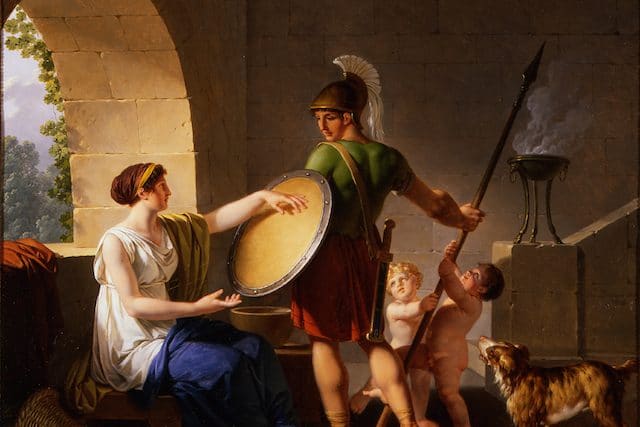
The people of ancient Greece did not marry out of love. On the contrary, marriage was considered the duty of every free born citizen of Greece. Fathers would arrange the marriages of their daughters and sons. Oftentimes, daughters were betrothed when they were infants. When it was time to formally take on the roles of husband and wife, the daughters were usually as young as 15-years-old and the sons averaged age thirty.
After the marriage was completed, the couples were expected to have as many children as possible. These children would later become soldiers, workers, and, again, parents for future generations.
Greek marriages could easily take place within wealthy families. A family’s desire to maintain its stature was a strong motivation to literally “keep it in the family” and there were many cases where first cousins and uncles and nieces were married to each other. In Sparta, the law even allowed siblings who shared the same mother to marry each other. This way, the money and properties held by the family would remain undivided and kept within its small social circle.
7. Divorce was Allowed
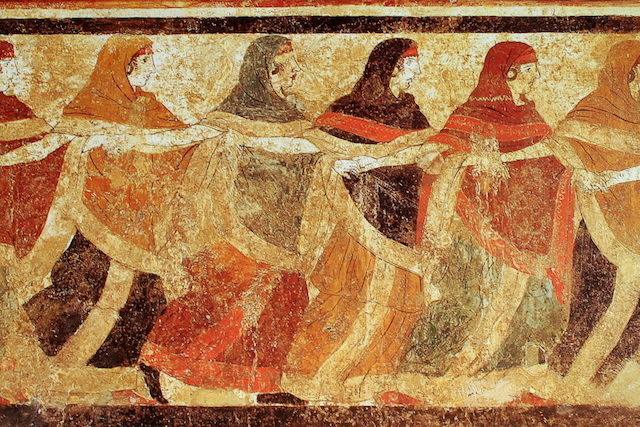
There were three ways to get divorced in ancient Greece, and all of them were rather easy to do.
First, a husband could dismiss his wife from his home. All he had to do was send her back to her family’s home with her dowry and the marriage was over.
If the wife wanted to leave the marriage, she was free to do so after she received the approval of an official called an “archon.” However, if a wife left her husband and returned to her family’s home, it gave her the reputation of being a disloyal wife.
The third way to enact a divorce could come from the wife’s father or brothers. This was the most common form of divorce in ancient Greece. Many times, when no children were produced in a marriage, the husband would ask the wife’s family to retrieve her. In other instances, the family would step in if no child was produced and then marry the woman to another man in the hope that she would finally be able to produce children.
In all instances of divorce, any children produced during the marriage were considered to be the property of the husband. For this reason, there were very few divorces initiated by the wives.
6. Military Service
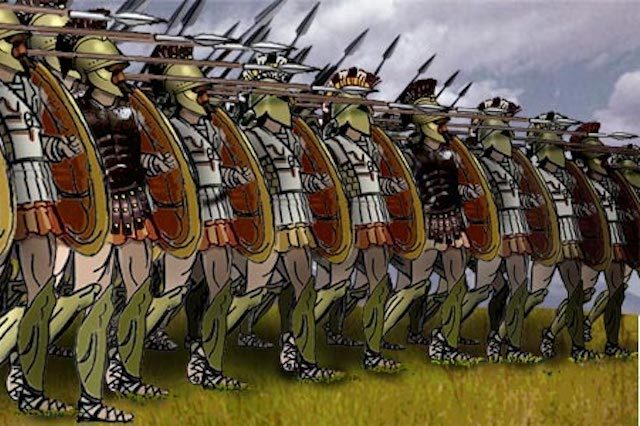
While motherhood was the only acceptable occupation for the women of ancient Greece, men were expected to serve as soldiers. In the city-state of Athens, this meant two years of mandatory service for each male. In the city-state of Sparta, being a soldier was the only occupation available to its male citizens.
Spartan boys left their homes at the age of seven and went to live in the barracks. Life in these boy barracks was brutal. The boys were often starved and encouraged to steal food if they wanted to eat. However, if the boys were caught stealing the food, they were beaten for being caught.
Young boys were also ritually beaten. They were flogged until they bled and any show of pain was discouraged. This was to harden the boys until they were twenty-years-old and ready to serve as soldiers.
While men served in the military, slaves were used to grow crops, build, and perform trade work. In fact, all the work needed to make Sparta thrive as a city-state was performed by the slaves the Spartans captured during their military campaigns.
5. The Education of Girls
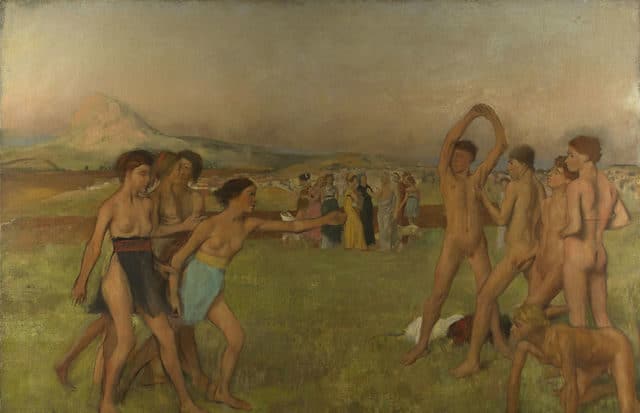
Throughout most of ancient Greece, girls were given no formal education. While boys were sent to schools, girls would learn how to be housewives from their mothers. Some of the wealthier families would hire tutors to teach their daughters how to read and write, but such knowledge was generally not taught to the majority of females.
In Sparta, girls were treated differently than in the rest of the country. While boys were sent off to the barracks to become soldiers, girls were given a public education in mythology, philosophy, and literature. Girls were taught to sing, dance, and were allowed to express themselves creatively.
Spartan women were also discouraged from living a secluded life like the women in Athens. Instead, the Spartans strongly believed that in order for women to produce strong sons, they must also be strong and active. Slaves were used to keep the home in order while Spartan women participated in strenuous athletic training and sports.
4. Different Types of Sacrifices and Offerings
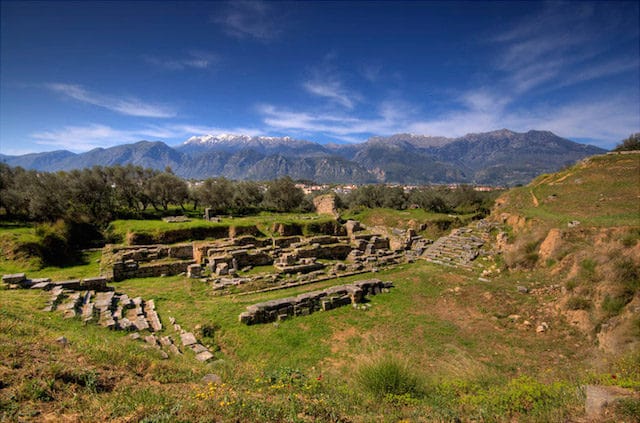
Religion was central to the Greek way of life and they expressed their faith in many different ways. There were monthly festivals, yearly festivals, feasts, and competitions where everyone, except for the slaves, were allowed to celebrate.
One common feature of their worship was sacrifice and offerings. There were two different types of sacrifices. The first was the blood sacrifice. This was when an animal was ritually killed and then eaten. A portion of the slaughtered animal was offered to the gods. Male gods received the offering of male animals and female gods received female offerings.
Bloodless sacrifices could be vegetables and grains that were offered to the gods. These bloodless sacrifices were burned upon the altar.
Finally, there were offerings. Offerings were left out in the open, sometimes placed on an offering table, where birds and other animals might reach the items. The offerings could be anything, from food to childhood toys. The items were not burnt and could simply be left outdoors to rot.
3. Beer was a Woman’s Drink

The men of ancient Greece did not care for beer. They considered the drink to be effeminate and preferred wine with their meals.
What is interesting about their wine was that it was stronger than the wine we drink today. With a higher alcohol content, the ancient wine was also far sweeter than what we are accustomed to. Because of this, the ancient Greeks watered down their wine before drinking it. Undiluted wine was considered unhealthy to drink whereas watered down wine was seen as medicinal, especially when it was mixed with aromatic herbs or honey.
2. Chamber Pots and Outdoor Etiquette
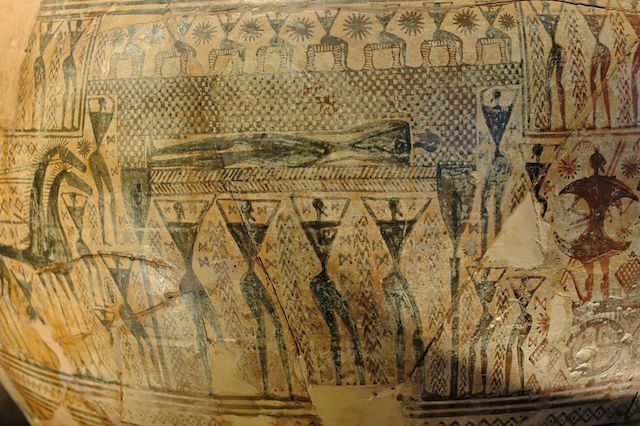
The men and women of ancient Greece used separate chamber pots within their homes. The men’s chamber pot had an opening in the front for urination and women used a boat-shaped pot. These would be emptied out onto the street.
There were even chamber pots for babies that contained two holes for the legs and a hole in the seat so that the baby could be held in place while going to the bathroom. However, it is believed that few of these types of baby potties were used. In general, people in the cities would hold their babies out of the windows until their business was done on the streets below.
According to Hesiod, the famous Greek poet, there were rules when it came to urinating outdoors. For one, men were not supposed to relieve themselves outside while facing the sun. This was considered offensive to the sun god. Hesiod also believed that good men should sit or use a wall away from the roadways because, again, the gods walked among people and might be offended by the sight.
1. Ankle Deep in Waste

Of course, not too many people appeared to listen to what Hesiod thought regarding toilet habits and they continued to use the streets as their literal dumping grounds. The simple fact is that there were no public bathrooms in ancient Greece and there was no indoor plumbing. People had to do something with the waste, and the streets were the easiest place to dump it.
In crowded cities, such as ancient Athens, it takes little imagination to realize just how terrible this waste dumping could be. In fact, with so many people dumping waste out of their windows and doors, it was said that while walking through the streets of Athens, the human fecal matter was ankle deep in some places.
Men, women, children, and livestock sloshed through the mess on the streets, dragged it into their homes, and contaminated drinking water and food. Drawn to the disgusting mess were rats, mosquitoes, and hoards of flies. There is very little wonder that disease and epidemics were rampant in the cities of ancient Greece.